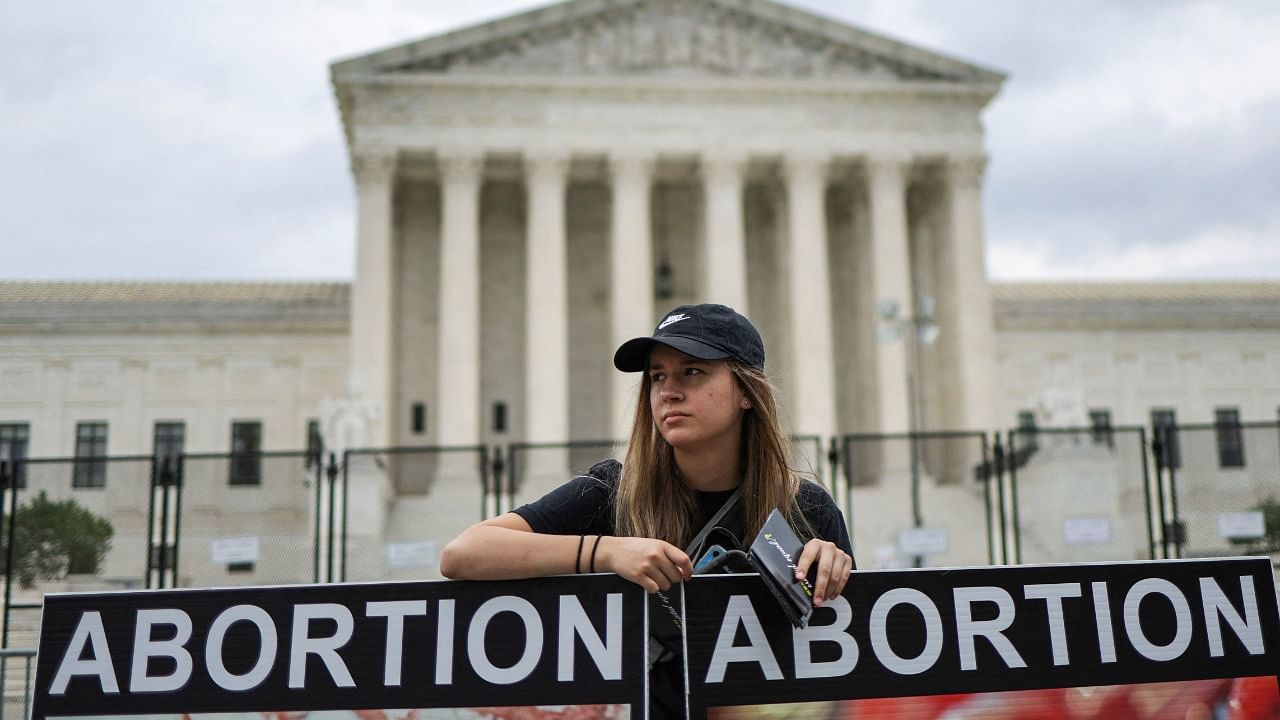
As the Supreme Court of the United States of America (SCOTUS) arrived at a conclusion on the validity of abortion law, United States is witnessing renewed activism. The SCOTUS rolled back its position of granting pregnant persons the right to abort. This judge-made or the SCOTUS-made law was established in a 1973 judgement in Roe v Wade case, which granted the person the right to choose whether to give birth to a child. This is a ‘pro-choice’ interpretation of the law and one that has tilted the presidential scales in the US. With the introduction of states’ discretion in passing their own abortion laws, the SCOTUS has given states like Texas autonomy to uphold the right of an unborn but not essentially the right of the living mother.
This may surprise many, but the Indian abortion laws are indeed Roe v Wade in motion. India, too had its share of debate on pro-choice vs pro-life in its 73 years of constitutional history. This was specifically dealt with in 2003, when the Medical Termination of Pregnancy (MTP) Act of 1971 was amended, with subsequent amendments as recently as 2021.
The SCOTUS’ decision would have a specific and targeted reaction in the Indian law too. So far, the courtroom deliberations in India on abortion have referenced the American judiciary. To understand this linkage, one must understand that the permission to abort in India is based on the weeks of pregnancy, the circumstances and, more importantly, depends on the court.
Aborting a child through freewill is restricted with caveats of choice of life to be saved -- life of the parent or the life of the unborn child. This decision is left to the medical practitioner, medical board and the courts.
A pro-choice legislation, though in line with the universal declaration of human rights, is not simple as India’s laws operate in silos and the pregnant person needs to petition the court. This fundamentally is vesting the courts, and the bureaucratic system, with the power to determine the choice, and the right of self-determination in effect is left to red tape.
This topic is not unique to India. In its landmark decision of A, B and C v Ireland (2010), the European Court of Human Rights (ECHR) determined that ECHR has no role to play in the national legislation of Ireland, to impose a clause restricting the right of women to abort. It went on to say that the ECHR does not find Ireland to be violating the ECHR’s Article 8 -- the right of life. It held that a country is responsible for providing the necessary mechanisms to allow the pregnant persons to determine if their life is at risk.
India now has the task of striking a balance between the SCOTUS and the ECHR, potentially resulting in two polarised views, while striking a balance by selective restriction.
According to a study conducted in 2020, in India abortion as a right of the person is still at the constitutional doorsteps of various courts and the right of choice of the person is still left to the judiciary after passing through all the hoops in the bureaucratic system -- the medical board and then the reference and the lower judiciary, etc., -- with 153 cases before various fora. These are reported cases as it is difficult to assume that India has a higher access to the judicial system for a sensitive topic like abortion. India still carries the stigma of ‘safe sex’ and quacks hold a sway.
In striking this balance, India must not alter the fundamental right of the pregnant person. A fundamental right with a negative obligation has haunted India for long. In 2017, the Supreme Court had to decide on the right of a minor to terminate her pregnancy, which was the result of an offence and she did not want.
The pregnant person, even as the bureaucratic trauma is underway, must make the case to the court as to why the persuasion of SCOTUS in the Indian Judiciary should not prevail. In essence, a person arguing for abortion has lost the important precedence in international jurisdiction to further her claim.
This is an opportunity for India to legislate comprehensively by choosing a position departing from the SCOTUS while retaining the international non-
derogable human rights principles.
(Amirthalakshmi R is the principal counsel at the Chambers of Dr Srikant Parthasarathy and the latter is a professor of International Law.)